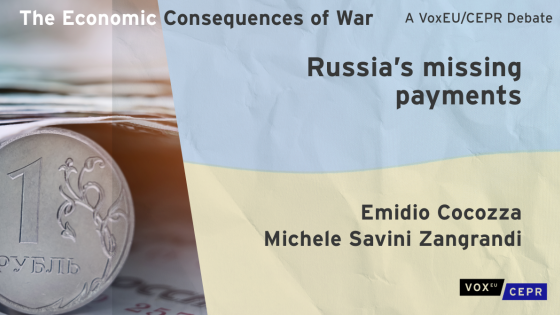The economic literature has long debated the trade-off between rules and discretion in public procurement. On the one hand, open auctions with little discretion are seen as a powerful tool to drive efficiencies and ensure competition. One reason is that they help increase transparency and obtain fair prices (OECD 2016). Indeed, evidence from countries with high levels of perceived corruption documents a negative relationship between bureaucrat discretion and procurement outcomes (Di Tella and Schargrodsky 2003, Palguta and Pertold 2017). On the other hand, procedures which delegate higher decision-making power to local public agencies may be desirable when projects are particularly complex (Bajari et al. 2008), when important quality dimensions are not sufficiently guaranteed by contractual terms (Manelli and Vincent 1995), to encourage public officials to acquire relevant information (Aghion and Tirole 1997), or to sustain reputational mechanisms and long-term relationships (Spagnolo 2012, Coviello et al. 2018).
Bureaucrat discretion in Italy
In a recent paper, we provide novel empirical evidence on the real effects of bureaucrat discretion, exploiting the Italian context (Baltrunaite et al. 2018). In particular, we study municipal-level public works procurement during the period 2009–2013. Our identification strategy exploits the fact that the Italian procurement system is characterised by different degrees of discretion granted to administrations depending on the size of the tender, a threshold that was changed in 2011. Before that date, the use of discretionary (negotiated) procedures in public works procurement was restricted for contracts with a base price above €500,000. The 2011 reform raised this threshold to €1 million, thus increasing the scope of discretion of procuring agencies.
Findings
Using a differences-in-differences empirical strategy, we estimate that broader discretion leads to a large increase in the share of procurement contracts awarded to politically connected firms – that is, those having local politicians among their administrators or shareholders, and to a decrease of winning firms’ ex-anteproductivity.
Our focus on supplier selection – unlike the existing literature, which has mainly looked at tender-level outcomes – provides insights on the effects of public demand on the economic activity in procurement-related industries. Indeed, as a sizeable amount of resources are dedicated to public procurement, public administrations are important buyers in many sectors. If they happen to favour a flow of resources from healthier to worse-performing firms, their behaviour may lead to a misallocation of public resources, hampering the cleansing role of market discipline. Furthermore, the ex antecharacteristics of the winning firms may provide indirect evidence on the quality of procurement purchases, under the plausible assumption that a less productive firm would produce a worse outcome (in terms of quantity and/or quality) for a given price/quantity of inputs.
Importance of the competence of procuring agencies
Discretion effects, however, may vary substantially across procurement agencies. For example, discretion may be less effective when granted to public administrations that are less qualified, more opaque, and more exposed to the risk of corruption. The heterogeneity analysis shows that the adverse effects of discretion on supplier selection are indeed concentrated in municipalities characterised by a lower institutional quality, which we proxy by measures of corruption risk at the local level, the level of education of public officials and local politicians, and the (pre-reform) degree of transparency of the procuring agency. These results suggest that the lack of competence may prevent local procuring agencies from exploiting potential benefits of discretion. Interestingly, this also indicates that diverging results in the existing literature may be partially explained by the heterogeneity of public agencies and of the environments in which they operate.
Finally, we document the absence of information regarding the actual implementation of the project (e.g. cost overruns) for a large number of tenders. Most importantly, we show that higher discretion results in lower transparency. This evidence is in sharp contrast to the guidelines of the international institutions on public procurement recommending that more discretion to procuring agency should be accompanied by stronger accountability.
Policy implications
Our work offers several insights for policymakers. First, regulators aiming at an efficient allocation of public resources should carefully assess the multifaceted effects of discretion in public procurement procedures, considering not only its direct effects on procurement outcomes, but also its market-shaping effects on the related sectors. The presence of significant and tangible benefits for politically connected firms further suggests that any increase in scope should be accompanied by a refinement of regulation on conflicts of interest in public procurement. Moreover, the delegation of decision making to local administrations should be subject to appropriate checks and balances. These may, for example, include prerequisites in terms of competence and integrity for public procurers, and transparency requirements to facilitate accountability to the regulator and the local community.
Editors’ note: The views expressed here are those of the authors and do not necessarily reflect those of the Bank of Italy.
References
Aghion, P and J Tirole (1997), “Formal and real authority in organizations”, Journal of Political Economy 105: 1–29.
Bajari, P, R McMillan and S Tadelis (2008),“Auctions versus negotiations in procurement: An empirical analysis”, Journal of Law, Economics & Organization 25: 372–399.
Baltrunaite, A, C Giorgiantonio, S Mocetti and T Orlando (2018), “Discretion and supplier selection in public procurement”, Bank of Italy, Working paper 1178.
Coviello, D, A Guglielmo and G Spagnolo (2018), “The effect of discretion on procurement performance”, Management Science 64: 715–738.
Di Tella, R and E Schargrodsky (2003), “The role of wages and auditing during a crack-down on corruption in the City of Buenos Aires”, Journal of Law and Economics 46: 269–292.
Manelli, A M and D R Vincent (1995), “Optimal procurement mechanisms”, Econometrica 63: 591–620.
Palguta, J and F Pertold (2017), “Manipulation of procurement contracts: Evidence from the introduction of discretionary thresholds”, American Economic Journal: Economic Policy 9: 239–315.
Spagnolo, G (2012), “Reputation, competition and entry in procurement”, International Journal of Industrial Organization 30: 291–296.







